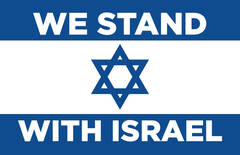- About
- Blogs
- Community
- Events
- Learn
-
Photo Gallery
- Rabbi Weill's 60th Birthday
- Purim Shpiel 2025 Pics
- Purim 2025 Pics
- HH 5785 / 2024 Pics
- Magen David Odam Ambulance Dedication Photos (2024)
-
PAST PURIM SPIELS
- Purim Shpiel 2024 - Ghosts of Purim
- Purim Spiel 2022: Shushan Incorporated (26 photos)
- Purim Spiel 2019: Young Esther Stein (12 photos)
- Purim Spiel 2018: Saving Mordecai (Rehearsal) (81 photos)
- Purim Shpiel 2017: Bye Bye Haman (189 photos)
- Purim Shpiel 2017: Bye Bye Haman (Rehearsal)
- Purim Shpiel 2016: The Queen and I (Rehearsal) (124 photos)
- Purim Shpiel 2015: Li'l Orphan Esther (87 photos)
- Purim Shpiel 2015: Li'l Orphan Esther (Rehearsal) (18 photos)
- Purim Shpiel 2014: PurimTime (70 photos)
- Purim Shpiel 2013: The Book of Esther (27 photos)
- Purim Shpiel 2012: The Trial of Haman (3 photos)
- Purim Shpiel 2011: The Megillah – A Shlock Opera (16 photos)
- Purim Shpiel 2010: The Megillah – A Thrilla' (14 photos)
- Folk and Rock Revue June 2019 (18 photos)
- Sisterhood 2018 Luncheon and Fashion Show (24 photos)
- Sisterhood Ron Balson Author Luncheon (19 photos)
- Sisterhood Chanukah Luncheon (9 photos)
- Kristallnacht 75th Anniversary (13 photos)
- Martin & Henrietta Fox Torah Project (23 photos)
- Sukkah Decorating 2015 (4 photos)
- Resources
- Support
- Worship
We Share One Father
06/15/2020 05:35:28 PM
Rabbi Weill
| Author | |
| Date Added | |
| Automatically create summary | |
| Summary |
I’d like to begin with a thought experiment. Imagine an American, or someone who lives in America, who is radically different from you.
Focus on the qualities that you think most sharply divide you from that person.
Different religion? From different regions of the country? Or towns or neighborhoods? Different values? And political orientations? Different ethnicity or race? Different accent or manner of speaking? How about a different career path or educational attainments? Different sexual identity?
Your “opposite” need not be different in every one of these ways. Just create an image of the kind of person who likely really does exist, and you are just very different. You have nothing or almost nothing in common. Perhaps certain aspects of your identities seem inimical to each other. Consider that person. What do you see?
Now, acknowledge any negative feelings you may have towards that person. Does the person make you uncomfortable? Annoy you? Frustrate you? Does that person’s existence threaten you? Frighten you? Do you feel superior to that person?
Can you put a name to your feelings? Is it bias? Intolerance? Prejudice? Is it racism?
And now, instead of standing opposite each other, imagine yourself standing next to this person, shoulder to shoulder, before a high and lofty throne. And upon that throne, evaluating the two of you, is the Lord Eternal. Yes, consider your stark differences from God’s perspective. What does God see?
Well, I don’t want to be too presumptuous, but I don’t mind being a little presumptuous. I can state fairly confidently that God cares not a whit about your differences. From God’s perspective your differences are insignificant. Barely a detail.
Race? Educational degrees? Money? Ultimately utterly nothing. How about intelligence? Don’t be so proud, smarty. God sees the true genius in each of us and God knows the sheer denseness in each one of us. Political views? God knows: we’re all just guessing. Even theology: Does God a theological litmus test. Believe this or else! That’s a fairy tale.
From the perspective of the One, differences between us and them, between you and you, and between you and me, are illusory, a vapor. Hevel havelim, ha’col havel. Futility of futilities, all a futility, barely a breath.
There’s a mishnah (Sanhedrin 37a) in which the rabbis discuss courts of law, and how the legal system can ensure that, in capital cases, witnesses will testify without bias. These are capital cases; the very life of the accused is on the line.
The mishnah states:
Nivrah Adam yichidi – Adam was created alone
Mipnei shalom ha’briyot – for the sake of peace among all of humanity
She’lo yomar adam l’chavero – so that no one person will say to another
Abba gadol mei’avicha – my father is greater than your father.
This means, of course, we are essentially related.
One father, Adam. One mother too, Eve. For peace to prevail among us, we must remember this and focus on that sameness, and not on our differences.
And yet we cling to our differences, don’t we? We nurture them, these supercilious notions of superiority. But it’s all so foolish.
In this week’s Torah portion, Miriam learns this lesson the hard way. In a shocking departure from her otherwise stellar character, Miriam slanders her brother Moses, including his choice of wife. “Kushit lakach,” she exclaims. He has married a woman from Kush” That’s likely Ethiopia. In other words, an African woman.
Many commentators see this as xenophobia if not racism. What, my brother’s marrying a dark-skinned woman? It’s a shandah!
But the real shandah here belongs to Miriam and her prejudice, and that she possesses the temerity to express it so brazenly.
God is angry. To express divine displeasure in her racist remark, he strikes her with a skin affliction that turns her skin white, k’sheleg, white as snow.
It is as if God is saying, “Oh, you’re so enamored with lighter skin? Here, I’ll give you lighter skin. I’ll make you white, really white, like snow. Satisfied?”
If Miriam, the prophetess, can harbor prejudice, any of us can, and most of us do.
Our nation has seen enough of that. Our compulsion to feel superior – and to deem others inferior – has caused centuries of suffering. Our national sins: genocides, bitter, horrific slavery, legal racial discrimination, systemic injustices that have led us here and to today. We are a nation wracked with confusion, confounded as to who and what we stand for. Who, we wonder, are we as a nation?
And another question: Who are we, as Jews? We are not immune to prejudice.
Yes, of course, we ourselves are at times victims of prejudice. But we cannot use that as an excuse to ignore our own prejudices, both in this country and elsewhere – in Israel as well. We need to acknowledge the hatred in our own hearts.
And we need to acknowledge it in our sacred texts too. Yes, our Bible calls for the pursuit of justice, but it also promotes prejudice and violence. Non- Israelite slaves, for example, are not afforded the same protections as Israelite slaves.
And God commands Joshua to totally wipe out entire populations – children too. Rabbinic literature as well. It contains some more enlightened ideas about the nations – and the opposite of that as well.
As for us? Let’s be honest about this. Let’s just start by never again using the word shwartzeh. It is not only undignified and unseemly. It’s not cute or and it’s not funny either. What is it then? It is rank racism. Let’s throw that word away forever.
Miriam was punished for using a racial epithet. Let’s learn that lesson.
And finally let us as a community, a Jewish congregation, fulfill our mandate to bring justice to the world. Many of you have asked me what we at EHNT are doing. Some of us have already discussed this. Let’s begin. We need your help. Let’s get busy together.
The best of our tradition demands a forceful response to and against racism and prejudice and injustices. We Jews have a history of doing so in this land. Our activism for social justice is a precious heritage.
We are Jews, friends. Yes, ultimately no different than anyone else, but nonetheless motivated by a mission. And so...
Where there is injustice: tzedek, tzedek tirdof – justice, justice you shall pursue.
Where there is brokenness: litakein olam b’malchut Shaddai – we repair the world under the kingdom of the Almighty.
Where there is sinat chinam, baseless hatred, we act with ahava rabba, abundant love.
Where there is choshech ba’aretz, darkness in the land, we are or la’goyim, a light unto the nations.
Let us together walk the derekh tzedek, the path of righteousness as we celebrate that one indisputable fact: av echad, we all have but one father.
Shabbat Shalom.
Wed, October 22 2025
30 Tishrei 5786
"Unveiling Death"
Podcast by Rabbi Weill
![]() CHECK OUT THE LATEST EPISODE - The Hospice Volunteer: Kindness is King with Jack Lauwasser
CHECK OUT THE LATEST EPISODE - The Hospice Volunteer: Kindness is King with Jack Lauwasser
__________________________

Friday, November 7th
7:30 PM
In-Person & Zoom
__________________________
Our Worship Mishpachah
___________________
SHIRENU/OUR SONG
Join EHNTJC's Congregational Choir! We will sing at services and other special events. Led by Cantor Daniel Gale.
Please contact bill@ehnt.org if you are interested in joining.
__________________________










 Like Us On Facebook
Like Us On Facebook